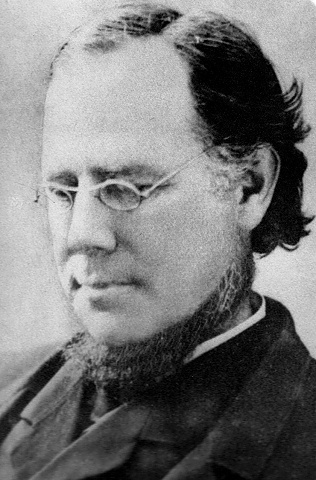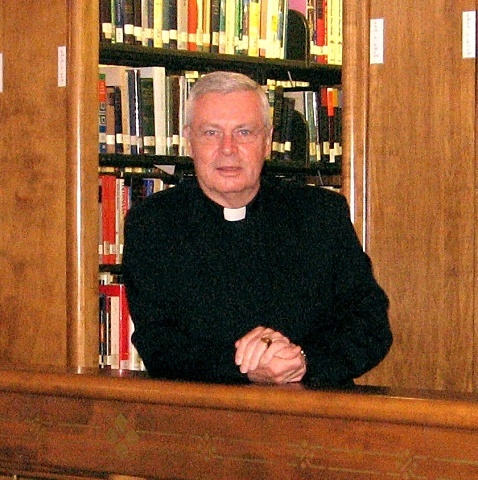March 17, 2014
The following text was written by Servant of God, Father Isaac Hecker, as found in his notes for retreats, dated 1854.
True happiness
God in commanding us to love him with our whole heart, mind, soul and strength only enjoined upon us to seek our highest and greatest happiness. God alone is the health of our intelligence and the delight of our will – the completion of our desires, wants and faculties.
Our true happiness consists in the simultaneous development of all our faculties directed in the order of divine grace towards their highest end. This end is no other than God; and religion is able to bring the soul in perfect complete relations with God. One may say that the summit of all human perfection and happiness on earth consists in finding the source of all pleasure in the sole execution of God’s will. The end of our intelligence is contemplation, as that of our will is charity. Our blessedness is found in this completion.
Paradise was to behold all things in God face to face. Sin caused us to lose this union. Eliminate sin and all affection for it, and this union will again be restored to us. This restoration is the work of the Church. For the Church not only seeks to save man’s soul for all eternity but also to restore him on earth to his paradisiacal state. For proof of this she puts in God’s hands the lives of the saints.

Human beings are incomplete; each of us is a work in process. Because we are incomplete, our search for completion is our search for happiness. If we could only find fulfillment then we would truly be happy and at peace. But there are so many roads to take in our search for happiness. If we could just find the right relationship, that significant other who loves us unconditionally. If we could just find the right job, a work that gives us recognition or purpose. If we could just win the lottery and retire with all the money we need to do all the things that we want to do. If we were only healthier, or younger, or thinner or in shape. If we could find that which completes us, we would truly be happy.
Servant of God, Father Isaac Hecker gives us some insight into happiness. What fulfills us is God. What completes us is a relationship with God. As Father Hecker says, “God alone is the health of our intelligence and the delight of our will – the completion of our desires, wants and faculties.” Our faith journey towards God is often the road less traveled but is the pathway to personal happiness. Because human beings are part spirit as well as body, we are by nature spiritual beings. God has made us in such a way that there is a part of us that cannot find peace unless it rests in God. So if you want to be happy, explore your spiritual side. As we open our hearts to God’s love, our eyes to God’s presence and our minds to God’s word, it may take a while for it to sink in but a sense of purpose, a sense of peace and true sense of fulfillment can be ours.

Servant of God, Isaac Hecker wrote these spiritual notes as a young Redemptorist priest around 1854, and they have never been published. Hecker was 34 years old at the time and had been ordained a priest for five years. He loved his work as a Catholic evangelist. The Redemptorist mission band had expanded out of the New York state, and the missionaries’ national reputation continued to grow. Hecker had begun to focus his attention on Protestants who came out to the missions. To this purpose Hecker began to write in 1854 his invitation to Protestant America to consider the Catholic Church, “Questions of the Soul,” which would make him a national figure in the American church.
Hecker collected and organized these notes that include writings and stories from St. Alphonsus Liguori; the Jesuit spiritual writer Louis Lallemant; Lallemant’s disciple Jean Surin; the German mystic John Tauler; St. Thomas Aquinas; St. Theresa of Avila; and St. Jane de Chantal among others. These notes were a resource for his retreat work and spiritual direction. These short thematic reflections demonstrate Hecker’s growing proficiency in traditional Catholic spirituality some ten years after his conversion to the